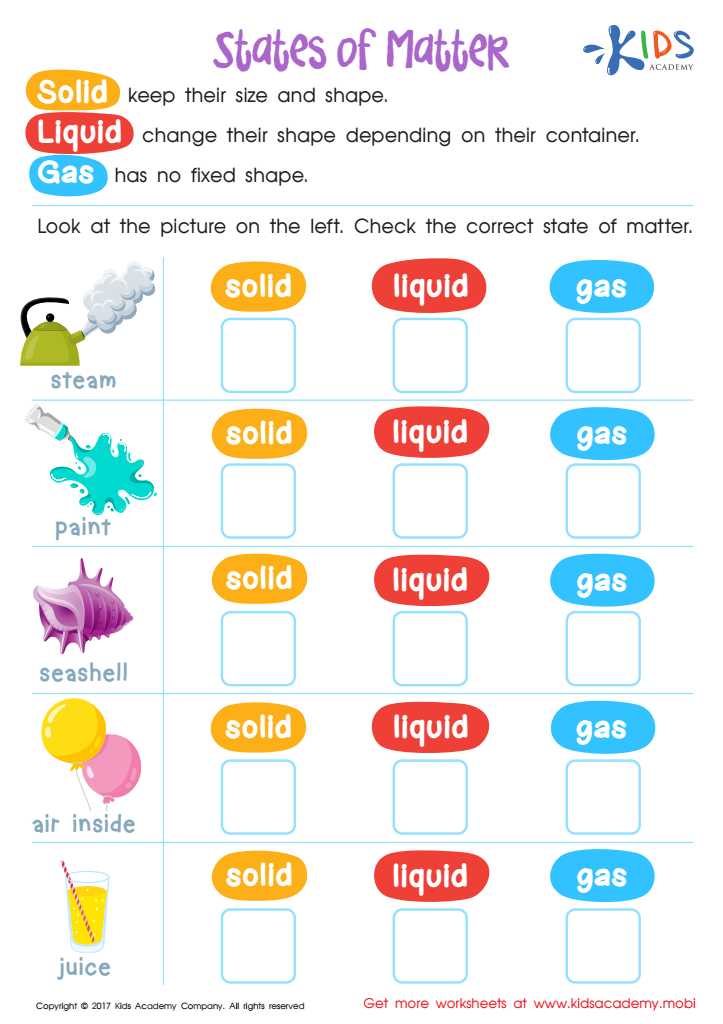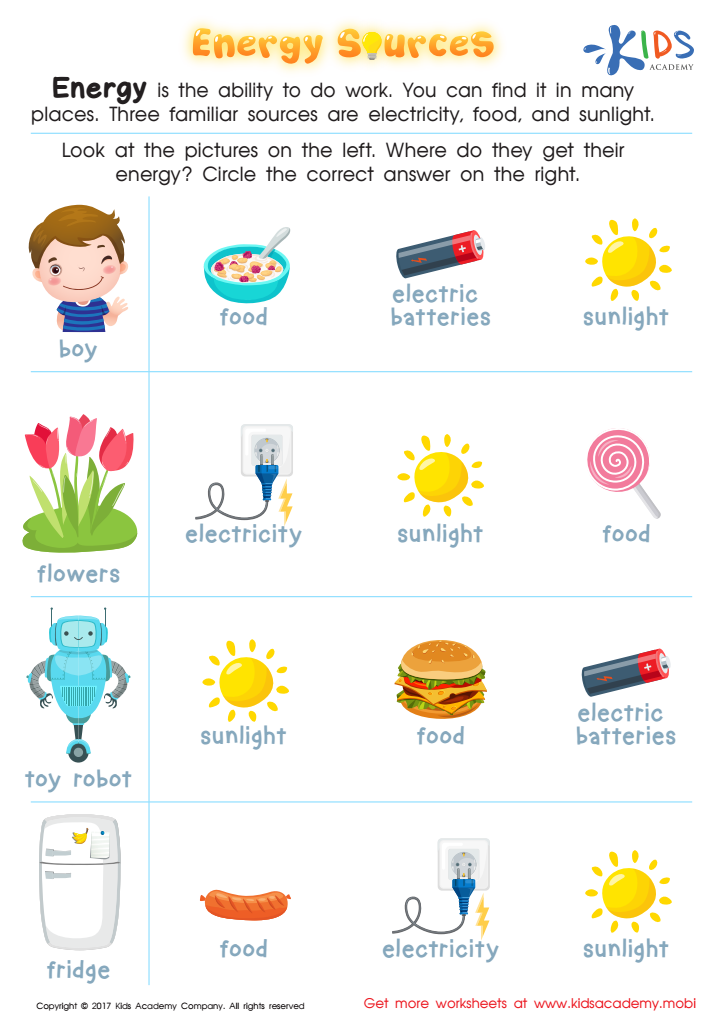Physical Science Worksheets for Ages 4-8
3 filtered results
-
From - To
Explore our engaging Physical Science Worksheets for ages 4-8, designed to ignite curiosity about the world around us! These educational resources help young learners grasp essential concepts such as matter, energy, and simple scientific observations through interactive activities. Our worksheets promote exploration and hands-on learning, making science fun and approachable. Ideal for home or classroom use, they cater to various learning styles and encourage critical thinking. From vibrant illustrations to simple experiments, each worksheet supports foundational science skills and nurtures a sense of wonder about the environment. Start your child's scientific journey today with our captivating worksheets!


Physical Science: States of Matter Worksheet


Sink or Float Printable


Energy Sources Printable
Parents and teachers should care about Physical Science for ages 4-8 because it serves as a foundational stage for children's understanding of the world around them. Early exposure to physical science concepts—such as matter, energy, force, and motion—nurtures curiosity and encourages critical thinking. At this age, children are naturally inquisitive, asking questions about how things work. Engaging in physical science stimulates their desire for exploration, prompting hands-on activities that foster a love for learning.
Additionally, physical science helps children develop essential skills such as observation, experimentation, and problem-solving. These skills translate into lifelong learning habits and promote cognitive development. Through simple experiments and interactive play, children gain a sense of agency and instill a confidence in their ability to investigate and understand complex ideas.
Moreover, a strong foundation in physical science can spark an interest in STEM (Science, Technology, Engineering, and Mathematics) fields, ultimately contributing to a more scientifically literate society. Early education in physical science not only prepares children for future academic success but also promotes critical thinking, creativity, and an appreciation for the scientific method—all vital for navigating the complexities of our modern world. Thus, investing in physical science education is crucial for holistic child development.
 Assign to My Students
Assign to My Students















